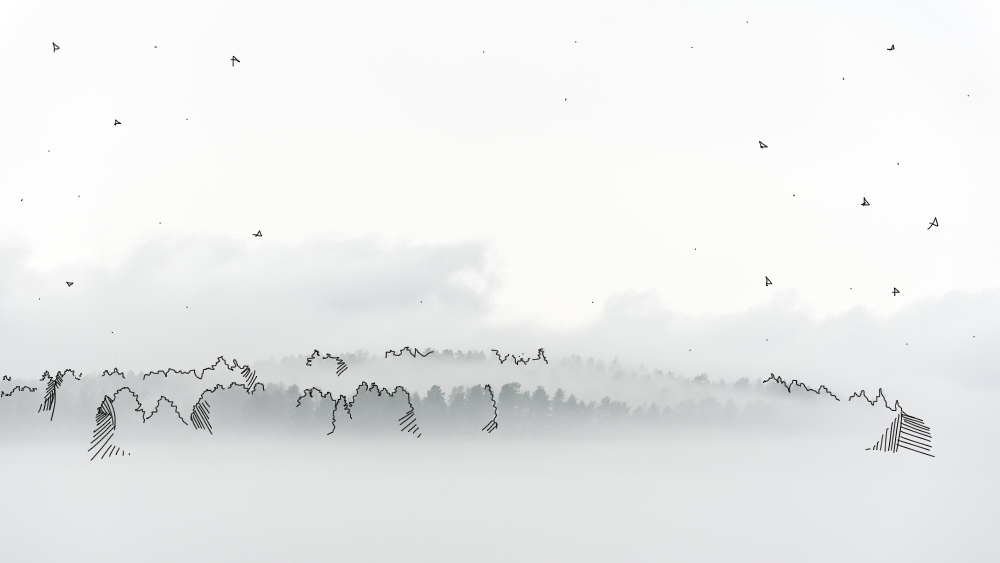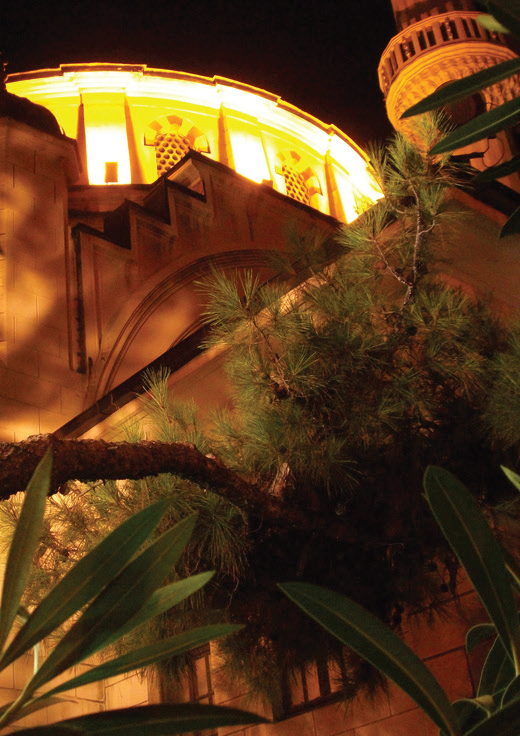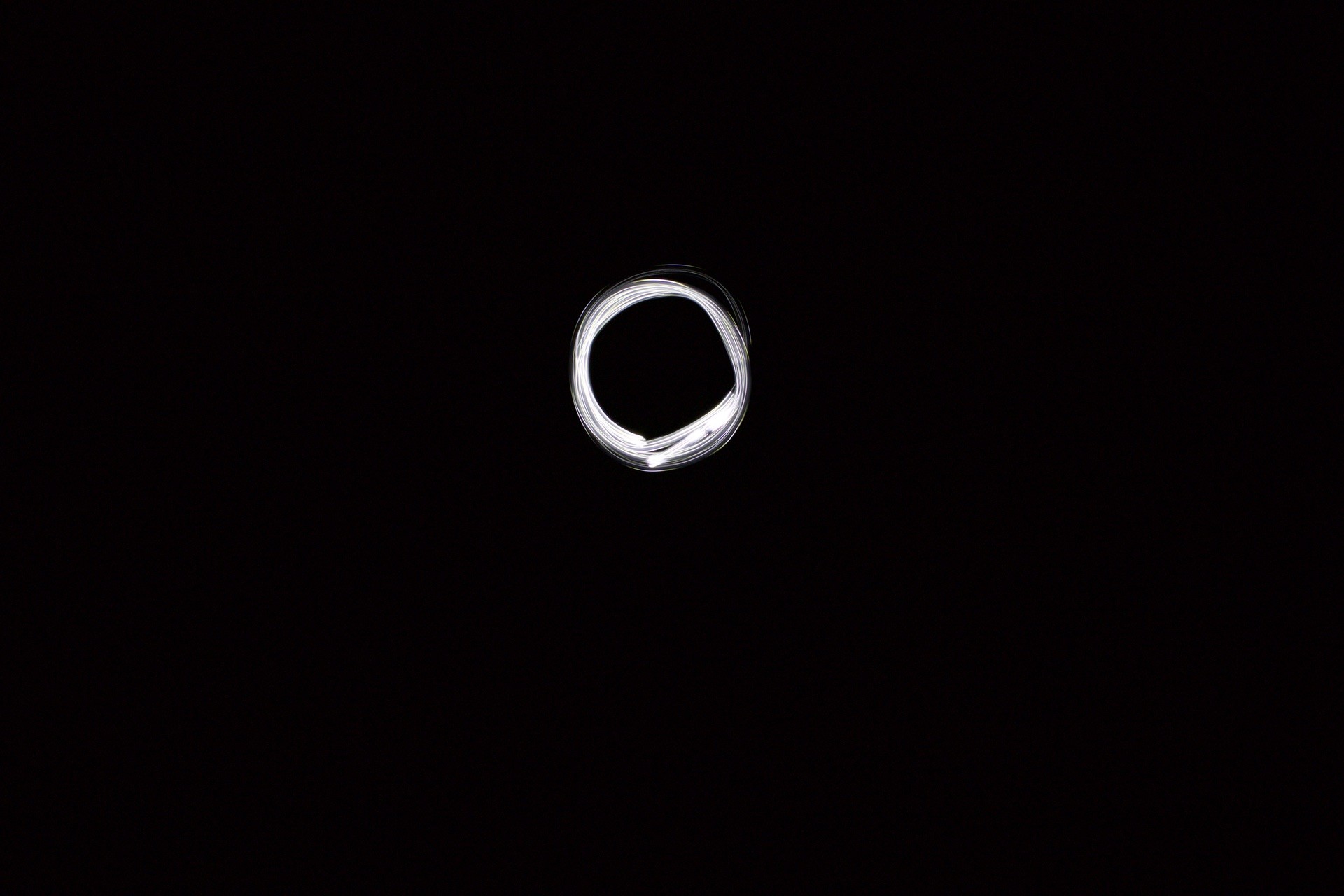
What to do after a death
A practical guide for Muslims
.

"Verily, we belong to Allah & to Him we will return"
Surat Al-Baqarah: 156


Introduction
An absolute certainty of all created life is death, be they male or female,
rich or poor, black or white, sick or healthy, young or old. Despite the
uneasiness people feel in talking about or even merely thinking about
this topic, due to its unavoidable and inevitable nature, it only makes
sense to prepare for it.
This publication is designed to allow one to prepare themselves for
someone in their near family passing away. It features a practical guide
of what needs to be done, fulfilling both legal and Islamic requirements.
Thereafter it goes through the complete Islamic rites of passage,
including the relevant prayers and avoiding customs which go against
the teachings of Islam.
Topics covered by this guide include:
• How to perform Janazah prayers
• Writing a will
• Who to contact when a close relative passes away
• Other reference material about the Islamic funeral process
It is also hoped that this publication can be a reminder for each of us to
prepare for our own inevitable end. This information has been peer reviewed and checked by numerous community members and Sheikhs. It was compiled by the team who produced the MSA Australia publications.
This is the second edition, revised and updated.
Please email any feedback you may have to:
info@liveislam.org.au
What to do when someone shows signs of death

It is Sunnah (prophetic tradition) to encourage the person on whom the signs of death are clearly seen to lie on their right side facing the Qiblah (direction of Mecca). If not possible then on the left side facing the Qiblah. If lying on either side is painful it is permitted that they be positioned to lie on their back with their feet towards the Qiblah, and the head slightly raised with a cushion so that it faces the Qiblah. All the bed linen must be clean. If moving the dying person causes them any discomfort then leave them in any convenient position. Imam Nawawi explains that the aim of this practice is to ensure that the person faces the best direction, which is the Qiblah.
At this time the recitation of Qur’an is recommended.
Ma’qil Ibn Yasar reported that the messenger of Allah (saw) said:
“Whoever reads Ya Sin, seeking Allah’s pleasure, his past sins will be forgiven, so recite it over the dying among you”. [Bayhaqi]
Imam Nawawi has said in his al-Majmu: “It is recommended to read Surat Ya Sin for the dying, as has been told to us by our companions”.
This is because it mentions the scenes of the Day of Resurrection and so it would remind the person of those affairs.
This may be done in the same room. When one is incapable of reciting the Qur’an, someone else may be requested to recite these chapters or any other portions of the Qur’an.
When the end nears, the dying person’s breath quickens, the knees become so weak that they cannot move, the nose becomes bent and the temples subside. Using these signs understand that the person is nearing his end. The scholars recommend that the kindest of his kinship to him/ her and the most pious ones should sit by him/her and ease on him/her the situation. S/he should be provided with water if s/he requests or wet his/her lips and throat with water to ease the articulation there is no God but Allah.
Talqin: Talqin is to remind the dying:

LĀ ILĀHA ILLAL-LĀHU
There is no God but Allah
The Talqin should be read before the dying person takes his/her last breaths, they must not be asked or ordered to read it, but must be helped to recall it. i.e. those present should continually repeat it aloud, in front of the dying. The messenger of Allah has instructed us to do Talqin to the dying person as he said in the Hadith of Abu Sa’eed, ‘do Talqin to your dead’ [Sahih Muslim].
One should be keen on making the Talqin the final words of the dying person. The Messenger of Allah counselled in a hadith related by Mu’adh, ‘Whoever’s last words were La Illah Illa Allah will enter Jannah’ [Musnad Al Imam Ahmad] Once the departing person utters the Talqin, all who are present should remain silent. The dying person should not be drawn into any worldly discussions, but if s/he discusses any worldly affair, then the Talqin should be repeated.
What to do when someone dies.

This section is divided into four parts:
• Practical steps to take upon the death of a loved one
• What to do and who to contact when death occurs at home and the cause of death is known
• What to do and who to contact when death occurs at a hospital and the cause of death is known
• What to do and who to contact when the cause of death is unknown
Practical steps to take upon the death of a loved one
These are the rites and customs for Muslims. Great care and respect is required to be offered to the deceased. Remember this will be you one day!
1. As soon as a person dies their eyes should be gently closed as per the hadith of Umm Salamah. [Sahih Muslim]
2. Gently press the chin upward while holding the top of the head.
If possible, place a strip of cotton under the chin and around the head, tying it firmly at the top.
3. Remove any jewellery such as rings, necklaces, bracelets, nose studs and any piercing. (It is especially important to remove rings before swelling occurs).
4. Straighten the limbs carefully and gently. If they will not straighten (i.e. due to a stroke) do not force them, as this could cause breakage and Islam emphasises that the body of a Muslim is to be respected whether dead or alive. Also, place something heavy on the stomach if possible to prevent bloating.
5. If possible place the toes together and bind the ankles carefully.
6. Do not cut nails or remove unwanted hair from the dead body.
7. Until the time of the dead’s bathing, the body should be covered by a Tahir (clean) sheet.
The one who performs Step 7 should read:

BISMILĀHI WA BIL-LĀHI WA `ALĀ MILLATI
RASŪLIL-LĀHI SALLALLĀHU `ALAYHI WA SALLAM
In the name of Allah and on the creed, religion and faith of Rasulullah, Peace Be Upon Him.
and may further read:
MĀ BA`DAHŪ WA ’AS`ID HŪ BI LIQĀ’IKA WAJ`AL MIMMĀ
KHARAJA ILAYHI KHAYRAM MIMMĀ KHARAJA `AN HU
O Allah! Ease upon him his matters and make light work for him whatever
comes hereafter and honour him with your meeting and make that which he has
gone to, better than that which he came out from.
MĀ BA`DAHŪ WA ’AS`ID HŪ BI LIQĀ’IKA WAJ`AL MIMMĀ
KHARAJA ILAYHI KHAYRAM MIMMĀ KHARAJA `AN HU
O Allah! Ease upon him his matters and make light work for him whatever
comes hereafter and honour him with your meeting and make that which he has
gone to, better than that which he came out from.

ALLĀHUMMA YASSIR `ALAYHI ’AMRAHŪ WA SAH-HIL `ALAYHI MĀ BA`DAHŪ WA ’AS`ID HŪ BI LIQĀ’IKA WAJ`AL MIMMĀ KHARAJA ILAYHI KHAYRAM MIMMĀ KHARAJA `ANHU
O Allah! Ease upon him his matters and make light work for him whatever comes hereafter and honour him with your meeting and make that which he has gone to, better than that which he came out from.
NOTE: It is Makruh (disliked) to recite the Holy Qur’an near the deceased person’s body during the period between death and the Ghusl (bath).
All the individuals of the deceased’s family may read:

ALLĀHUM-MAGHFIRLĀ WA LAHŪ WA ’A`QIBNĀ MINHU `UQBAN ĀASANĀ
O Allah! Forgive me and him and grant me a good reward after him.
Those who are grieved by this demise may read:
MĀ BA`DAHŪ WA ’AS`ID HŪ BI LIQĀ’IKA WAJ`AL MIMMĀ
KHARAJA ILAYHI KHAYRAM MIMMĀ KHARAJA `AN HU
O Allah! Ease upon him his matters and make light work for him whatever
comes hereafter and honour him with your meeting and make that which he has
gone to, better than that which he came out from.
MĀ BA`DAHŪ WA ’AS`ID HŪ BI LIQĀ’IKA WAJ`AL MIMMĀ
KHARAJA ILAYHI KHAYRAM MIMMĀ KHARAJA `AN HU
O Allah! Ease upon him his matters and make light work for him whatever
comes hereafter and honour him with your meeting and make that which he has
gone to, better than that which he came out from.

INNĀ LILLĀHI WA INNĀ ILAYHI RĀJI`ŪN
To Allah do we belong and to Him shall we return.

ALLĀHUMMA’JURNĀ FĀ MUSĀBATĀ WA KHLUF LĀ KHAYRAM MINHĀ
O Allah! Reward me in my affliction and requite me with (something) better than this.
When death occurs at home and the cause of death is known
1. Contact the family doctor immediately, provided the doctor attended the dead person during their last illness and can certify the cause of death. When someone dies, a doctor must issue a certificate that confirms the death. Funeral arrangements cannot be completed until the doctor has signed and issued this certificate (generally called a Doctor’s Certificate of Cause of Death).
2. Inform the local undertaker (See Appendix I) that a Medical Certificate has been issued. The undertaker will make all the arrangements with the Cemetery for burial. They will arrange for the body to be taken for washing and burial. Generally the local Islamic funeral service provider will guide you through the process.
3. The undertaker in charge of the funeral arrangements will generally collect all the information needed for registering the death and send it to the relevant state or territory government office. The funeral director may also help with things such as notices and generally makes all the arrangements for the funeral prayer at the local mosque with the Imam.
Death occurs in hospital and cause of death is known
1. If the hospital doctor is aware of the cause of death then they will issue the Certificate. The doctor may want to carry out a post-mortem but the doctor has to obtain the permission of the nearest relative. If
the post-mortem is required purely for the satisfaction of the doctor or the hospital, then permission should not be given. This type of post mortem can only be carried out with the permission of the nearest relative. This is discussed further in the next section.
2. Normally hospital staff will transfer the body from the ward to the hospital mortuary. But if arrangements are made swiftly then the body can be collected by the undertaker from the ward and taken to the mosque mortuary.
Once the doctor has issued the Medical Certificate and the undertaker has confirmed the time of burial, arrangements should be made for washing of the body. The undertaker will transport the body from the
hospital to the place of washing. If burial is to take place the next day, most undertakers do have facilities to keep the body overnight in the mortuary (See Appendix I).
When death occurs and the cause of death is unknown
Where the doctor is unable to certify the cause of death, whether the death occurred in a hospital or at home, they will report the death to the police who in turn will inform the Coroner.
Who is the Coroner?
The Coroner is a judicial officer who must be advised when a person dies from unnatural causes or where the cause of death is not known. Once a report of death is received, usually from police, doctors or hospital authorities; the Coroner has legal control over the body of the deceased person, and must establish:
• the circumstances surrounding the death
• how the death occurred
• the cause of death
• the particulars needed to register the death.
This is done by carrying out a post mortem examination commonly called an autopsy.
What is a post mortem examination?
A post mortem examination is the method of determining and recording the cause of death. It involves an external and internal examination of the deceased. Some tissue and blood samples are usually retained for laboratory analysis. After the post mortem, care is taken to return the body as close as possible to its original condition.
Is a post mortem allowed in Islam for a valid reason?
A very important and fundamental principle that should be remembered with regards to the human body is that the human body, whether dead or alive, is considered sacred according to Islam. Thus cutting it, mutilating it and tampering with it in any way without medical cause is considered unlawful.
Allah Most High says:
“And verily we have honoured the children of Adam”
[Surat Al-Isra: 70]
A human body is sacred even after death. The Messenger of Allah (saw) said: “Breaking the bone of a dead person is similar (in sin) to breaking the bone of a living person”. [Sunan Abu Dawud, Sunan Ibn Majah & Musnad Ahmad]
Imam Ibn Abidin (Allah have mercy on him) in his book Radd al-Muhtar states:
“A human being is honoured according to Shariah even if one is a non-believer (kafir), and the meaning is that ones body and organs are sacred. Hence, it is not permissible to even break the bone of a dead non- believers body”.
Based on this very important principle, many scholars have declared that carrying out post-mortems is unlawful, because it violates the sanctity of the human body. Cutting and dissecting the human body cannot be considered permissible, regardless of what beneficial results may stem out from carrying out a post-mortem. Moreover, in carrying out a post-mortem, the body of the deceased person will be stripped naked. This in itself, is also not permitted without a genuine and valid reason.
Also, the body will be denied the many injunctions and rituals prescribed by Shariah, such as prompt burial of the body, not transferring it from one place to another, ritual bath (Ghusl), shrouding (Kafn), etc. Due to the above reasons, contemporary scholars have declared that post-mortems are unlawful unless there is a genuine need, such as for criminal identifications and when one is forced by law.
The Scholars state that Muslims living in places where post-mortems become necessary by law, should struggle in order to avoid post- mortems. However, if one is compelled by law, it would be permitted due to need and necessity.
It is important to acknowledge that in coronial autopsies the agreement of the family is not required, but wherever possible the Coroner should give regard to the family’s wishes. In the case of a coronial autopsy, the National Code of Ethical Autopsy Practice allows for “specific cultural or spiritual rituals or needs”. In this regard, you should ask that respect is shown to the deceased body at all times by minimising all cutting and tampering of the body and nakedness.
MĀ BA`DAHŪ WA ’AS`ID HŪ BI LIQĀ’IKA WAJ`AL MIMMĀ
KHARAJA ILAYHI KHAYRAM MIMMĀ KHARAJA `AN HU
O Allah! Ease upon him his matters and make light work for him whatever
comes hereafter and honour him with your meeting and make that which he has
gone to, better than that which he came out from.
MĀ BA`DAHŪ WA ’AS`ID HŪ BI LIQĀ’IKA WAJ`AL MIMMĀ
KHARAJA ILAYHI KHAYRAM MIMMĀ KHARAJA `AN HU
O Allah! Ease upon him his matters and make light work for him whatever
comes hereafter and honour him with your meeting and make that which he has
gone to, better than that which he came out from.
